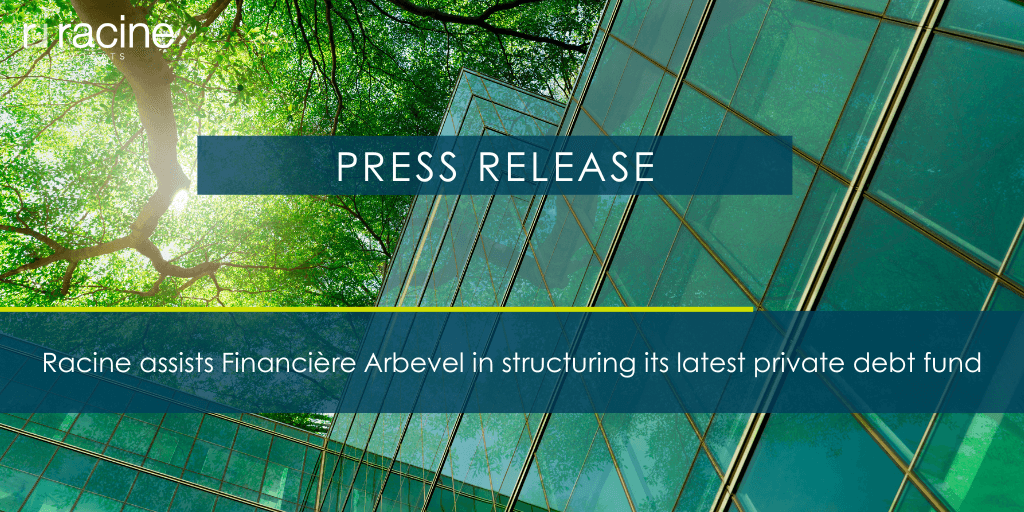Insights
20/03/20
Covid-19: The Commission sets up a special framework to facilitate State aid and takes its first decisions

| Key elements
· On 19 March 2020, the European Commission took urgent measures to facilitate individual or sectoral aid in the form of grants, repayable advances, tax concessions, loan guarantees or subsidised loans · The Commission is committed to dealing swiftly with aid applications from Member States · Since the issuance of this temporary framework, the Commission cleared: – three French and one Danish State aid schemes consisting of State guarantees on loans to firms, on 21 March – two German State aid schemes consisting of subsidised loans on 22 March – an Italian State aid scheme consisting in subsidies and repayable advances for the production and supply of medical devices and personal protection equipment on 22 March – four Portuguese State aid schemes consisting in guarantees for SMEs and midcaps in four different sectors: tourism, restaurants, extractive and manufacturing industry and event organisation on 22 March. · The usual tools of State aid law (e.g. aid to companies in difficulty, etc.) continue to apply |
The Covid-19 pandemic is causing a very large economic shock. To help companies cope with the difficulties, the Member States have announced emergency economic measures: deferral of tax and social security charges (in France), state guarantees on bank loans (€ 300 billion in France), recapitalisation or even nationalisation (project to nationalise Alitalia in Italy, possible nationalisation in France), public loans (in Germany), etc.
In this context, the European Commission (the Commission) has taken strong measures to greatly facilitate the granting of state aid by Member States. These new measures (1) complement the tools already existing before the crisis and still available (2).
- The COVID-19 Temporary Framework of 19 March 2020
The Commission has adopted, even faster than for the 2008 crisis, a temporary framework to facilitate public support in the context of the COVID-19 outbreak (the COVID-19 Temporary Framework[1]).
All the measures below must be subject to a notification to the Commission.
- New aid measures under the COVID-19 Temporary Framework
The COVID-19 Temporary Framework provides for five types of aid, in addition to the existing ones, which may be granted by Member States to support undertakings provided that they fulfil the conditions below.
- Aid scheme (aid granted to a specific category of firms) in the form of grants, repayable advances or tax benefits up to a maximum of €800,000 per firm
Special rules are set out for agriculture (maximum amount €100,000), fisheries and aquaculture (maximum amount €120,000).
- Aid in the form of bank loan guarantees (maximum 6 years and 90% of the loan amount) [2] granted until 31 December 2020 to SMEs and large companies.
These may be aid schemes or individual aid for investment loans or loans to cover working capital requirements. The maximum amount of the guaranteed loan depends on the duration of the loan, the total payroll, the turnover or the liquidity needs of the enterprise[3].
- Aid in the form of loans at subsidised rates (maximum 6 years)
The interest rate must be at least equal to the base rate applicable on 1 January 2020, plus the credit risk premium, with different rates for SMEs and large companies and depending on the duration of the loan. The maximum amount of the subsidised loan depends on the payroll, turnover or liquidity needs.
Aid in the form of subsidised loans and aid in the form of guarantees for bank loans cannot be combined.
- Aid granted through the banking sector
Aid in the form of guarantees or subsidised loans which will not be granted directly by Member States but through banks is not considered as aid to the banks but to their customers. The Temporary Framework COVID-19 also provides guidance on how to minimise any undue residual aid to banks and to ensure that the aid is passed on to the final beneficiaries (higher volumes of financing, guarantee premium or lower interest rates, etc.).
- Short-term export credit insurance
The COVID-19 Temporary Framework introduces flexibility regarding export credit insurance mechanisms.
- Conditions for the application of the aid measures provided for in the COVID-19 Temporary Framework
All these new aid measures must comply with certain conditions.
- this aid benefits firms which were not in economic difficulty before 31 December 2019 but which “entered into difficulty subsequently as a result of the epidemic”;
- grants are calculated on a gross basis – i.e. before any tax deductions or surcharges;
- all these measures will have to be notified to the Commission before being implemented by the Member States;
- All such measures will have to be published on a dedicated State aid website in each Member State within 12 months of their allocation.
The Temporary Framework is applicable as of 19 March and until 31 December 2020. The Commission will examine before this date the necessity to extend it and the need to amend the framework to provide some clarifications. In 2008, the Temporary Community framework for State aid measures to support access to finance in the financial and economic crisis, had been amended and extended several times until 31 December, 2011.
- First decisions of implementation of the COVID-19 Temporary Framework
On 21 March, the Commission cleared:
- three French schemes making it possible to mobilise approx. €300 billion:
- two schemes enabling Bpifrance to provide State guarantees on commercial loans and credit lines, respectively, for companies with up to 5,000 employees;
- one scheme to provide State guarantees to banks on portfolios of new loans for all types of companies. This is direct aid to the companies that will enable banks to quickly provide liquidity;
- a Danish scheme of €130 million of State guarantees for SMEs.
On 22 March, the Commission cleared:
- two German schemes for subsidised loans granted by the German development bank (Kreditanstalt für Wiederaufbau) in close cooperation with commercial banks;
- a €50 million Italian scheme for the production and supply of medical devices and personal protection equipment. It will benefit companies of all sizes which set up new facilities or expand existing facilities for the production or convert their production line. Products must be made available at the market prices applied in December 2019. The aid will take the form of direct grants or repayable advances. The Italian measure complies with the COVID-19 Temporary Framework insofar as it will not exceed €800,000 per beneficiary;
- four Portuguese schemes consisting in State guarantees for operating loans to SMEs and midcaps of four different sectors (tourism, restaurants, extractive and manufacturing industry and event organisation) for a total amount of €3bn
These schemes are compliant with the COVID-19 Temporary Framework since:
- the direct grants and repayable advances do not exceed €800,000 per beneficiary;
- the guarantees cover loans of limited duration and volume;
- the measures limit the risk taken by the State to a maximum comprised between 70 and 90 % depending on the scheme;
- the guarantees provided to the banks include the necessary safeguards to ensure that the aid is actually passed on to companies in need of liquidity.
- Special mechanism for dealing with State aid notifications and issues
The Commission has taken special measures to speed up examination of cases:
- Dedicated e-mail and telephone line available 7 days a week to answer questions from Member States.
- Publication of a template[4] to notify support measures.
- Speeding up of deadlines for authorising aid.
- Measures that could be taken before COVID-19 and are still applicable
A series of measures can be envisaged in normal times to support companies in accordance with EU state aid rules.
- Aid to remedy the damage caused by an exceptional event
On the basis of Article 107 (2) (b) TFEU, the Commission may authorise aid if it is intended to make good the damage directly caused by natural disasters or exceptional events.
- To qualify as an exceptional event, an event must be unforeseeable or difficult to predict, of a significant and extraordinary economic magnitude or impact. The Commission has indicated[5] that COVID-19 met these conditions. It has stated that it was necessary to establish a causal link between the exceptional event and the damage suffered.
- On 12 March, the Commission already approved[6] within 24 hours a €12 million Danish aid aimed to compensate organisers of major events for damage suffered as a result of the cancellation of their events. Loss of income and additional costs due to the cancellation, postponement or modification of the conditions for organising the event were considered compensable.
These measures could particularly apply to the transport, tourism, culture, hotel and retail sectors.
Furthermore, firms which have already received support as a firm in difficulty over the last ten years may also obtain aid on the basis of Article 107 (2)(b) if they demonstrate a link between the damage suffered and the COVID-19 epidemic[7].
- Aid to firms in difficulty:
Pursuant to the guidelines on firms in difficulty, Member States may grant:
- temporary assistance (6 months) to firms in difficulty, in the form of loan guarantees or loans;
- temporary support (18 months) for SMEs and small public enterprises, which are not considered to be in difficulty but which are faced with pressing liquidity needs stemming from exceptional and unforeseen circumstances.
- Other types of aid which do not have to be notified to the Commission
- General measures applicable to all undertakings (such as the suspension of payment of corporate tax, value added tax or social security contributions) do not constitute State aid. Member States may adopt them immediately. This is the case of the French Government’s decision to allow firms to defer without penalty the payment of social security contributions and taxes.
- De minimis aid, i.e. aid of a small amount (less than €200,000 over 3 years per undertaking in most sectors and less than €500,000 over 3 years per undertaking in services of general economic interest).
Aid that benefits from an exemption under the General Block Exemption Regulation (“GBER”). This is the case, for example, for aid for training, for disabled workers, etc. It is important to check that the proposed aid complies with the application criteria laid down in the GBER.
[1] https://ec.europa.eu/competition/state_aid/what_is_new/sa_covid19_temporary-framework.pdf
[2] The guarantee must decrease in proportion to the decrease in the amount of the loan when the reimbursement begins.
[3] The loan must not exceed (i) twice the annual payroll of the beneficiary (including social security charges and the cost of personnel working on the company’s site but officially paid by subcontractors) for 2019, or for the last year available, or (ii) 25% of the beneficiary’s total turnover in 2019.
[4] https://ec.europa.eu/competition/state_aid/what_is_new/Notification_template_107_2_b_PUBLICATION.pdf
[5] https://data.consilium.europa.eu/doc/document/ST-6818-2020-ADD-1/en/pdf
[6] https://ec.europa.eu/competition/state_aid/cases1/202011/285054_2139535_70_2.pdf
[7] COVID-19Temporary Framework, pt. 15.
Authors:
Bastien Thomas, Partner
Sabrina Noël, Associate
Baudoin Pillet, Associate
François Aubin, Associate
Concerned lawyers :







